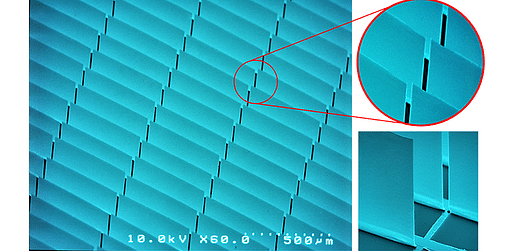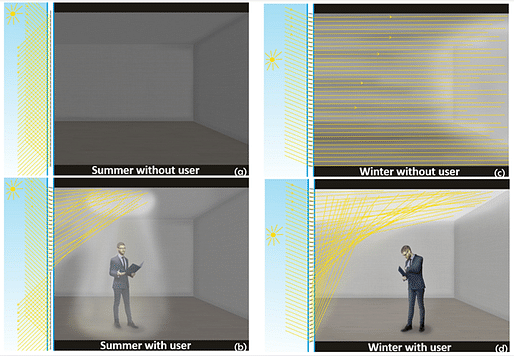

Researchers at the University of Kassel in Germany have published their findings on the potential for smart glazing to transform building energy use. With buildings responsible for 40% of primary energy consumption, and 36% of total CO2 emissions, the team led by Harmut Hillmer sought to explore how changes in the material composition of universal architectural elements could reduce the impact of the built environment on climate change.
The research, published in the Journal of Optical Microsystems, details the major energy savings to be gained by incorporating a system of tiny micromirrors into architectural glazing. “Our smart glazing is based on millions of micromirrors, invisible to the bare eye, and reflects incoming sunlight according to user actions, sun positions, daytime, and seasons, providing a personalized light steering inside the building," Hillmer explains.

The system departs from traditional smart glazing, which is typically optimized for either summer or winter conditions, and unable to offer year-round performance. The researchers, therefore, sought to create a system that responds to changes in local climate, uses available sunlight, regulates light and temperature, and saves substantial energy. The team’s solution embeds micromirror arrays inside insulation glazing, with an electronic control system allowing for changes in orientation. The system, invisible to the naked eye, can therefore respond to motion sensors in the internal environment, adjusting light and temperature levels as people move between, and within rooms.

As the system is embedded in the insulation gap between window panes, the mirrors are resistant to damage from wind, window cleaning, or weather conditions. The research team believes the system can provide free solar heating in winter, and overheating prevention in summer, as well as reducing energy usage by up to 35%, CO2 reductions of up to 30%, and steel and concrete use in high-rise buildings by 10%.
In addition, the research team highlights the reduced need for artificial light as a benefit to health and wellbeing, with many studies linking artificial light to a lack of concentration, higher susceptibility to illness, and disruption to sleep patterns and general mood.
No Comments
Block this user
Are you sure you want to block this user and hide all related comments throughout the site?
Archinect
This is your first comment on Archinect. Your comment will be visible once approved.